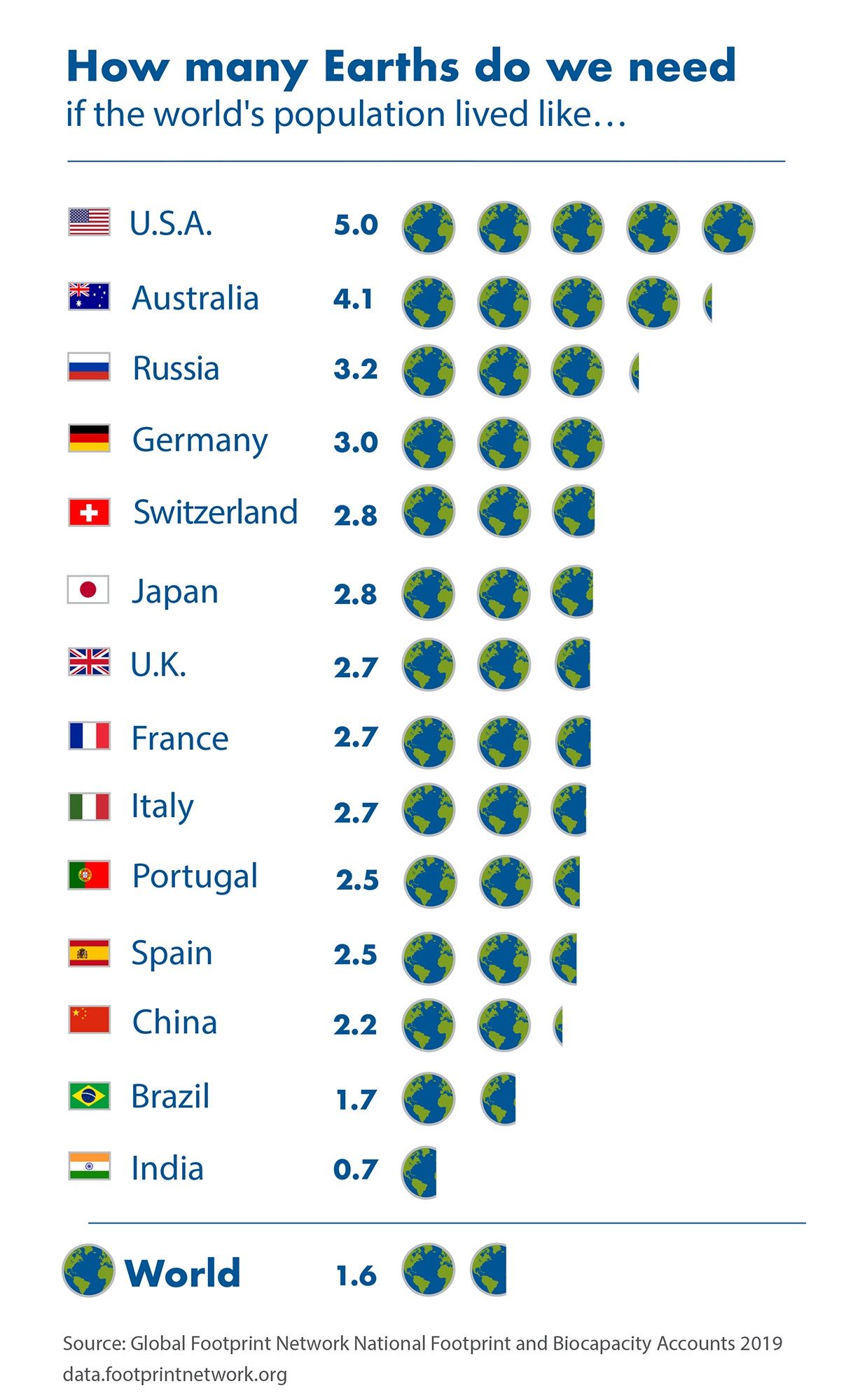Consumption goes down – COVID-19 gives Earth time to breath
For the first time since the 70s, we use less resources than the previous year. The corona-virus is to blame.
Each year, we use more resources than the planet can produce. To illustrate this overconsumption, the international think-tank Global Footprint Network calculates which day of the year we reach the point of over-consumption – the moment we have used more than our planet can produce. In 2020, the Overshoot Day fell on 22 August.
Last year, the day fell on 29 July, and 22 August 2020 is the first time, since the day was first ever recorded, that Overshoot Day falls on a date later than the previous year. The reason is that the corona-virus has led to a decrease in carbon emissions. But Laurel Hanscom, CEO of the Global Footprint Network, warns against seeing the decrease as a sign of progress: "Sustainability requires both ecological balance and people’s well-being ensured over the long-term, therefore this year’s sudden Ecological Footprint contraction cannot be mistaken for progress."
When the measurements started in the early 70's, the Overshoot Day fell on a date in December. Since then, the consumption of the earth's resources has gone up faster each year, and now we use 1.6 globes in a year. The Global Footprint Network also calculate how consumption varies between different countries. If we all lived as Americans, we would need five globes each year. But if we all lived as they do in India; we would have managed with 0.7 globes. Overconsumption can be reduced, amongst other things, by reducing food waste and carbon emissions.
Every Friday at noon, the Nobel Peace Center will release a peace dove together with “The good news of the week.”The dove is released from a window at the Nobel Peace Center, situated on the City Hall Square. As the dove crosses the square, the John Lennon song Give Peace a Chance will play from the bell towers.
Share:

